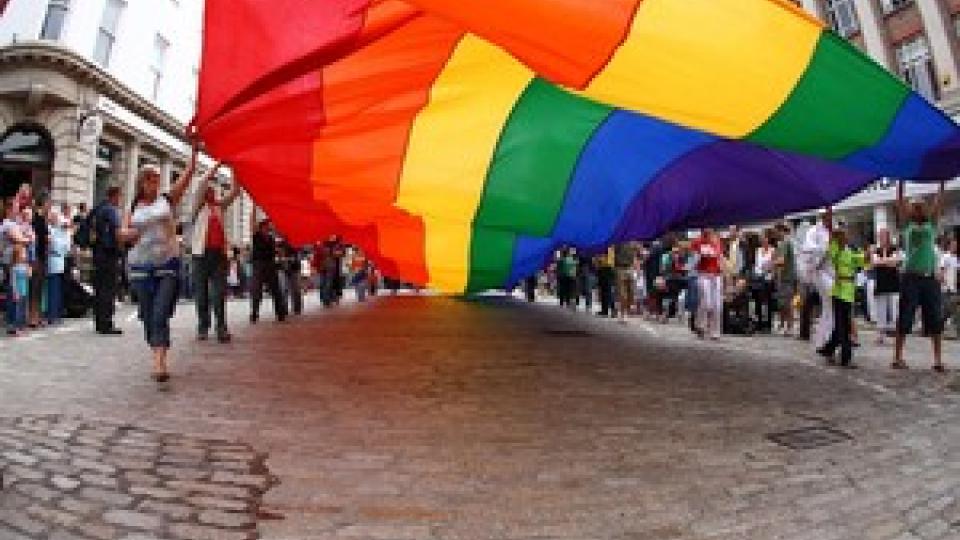Queer Pride Saves Lives

The fight for marriage equality in Australia has been long ongoing, and its success long, long overdue. Community Action Against Homophobia (CAAH), for instance, is just one of the groups which have fought for equal legal rights. Founded in 1999, it has been campaigning tirelessly for well over a decade. This activism has already changed Australia, helping create majority support for marriage equality.
Left movements have long recognised the need for a strong LGBTI justice movement, and the values of socialism have been instrumental in shaping much of the groundbreaking queer activism that has taken place since the early 20th century.
The debate around equal marriage has become prominent in recent months. This is largely due to the Irish referendum in May this year, which resulted in a resounding ‘Yes’ from the public for equal marriage rights and which paved the way for radical changes in constitutional law that now allow equal marriage rights for all Irish citizens.
For a nation that is known to have been incredibly socially conservative, such a progressive shift cannot be overlooked. And for such a positive change to take place in a country that many Australians identify strongly with proves more than ever that our own politicians' stance on the issue is verging on the ridiculously archaic.
It is bad enough that the majority of our conservative politicians seem to lack two very important facets of good leadership — coherency and logic. Now they are spreading ignorance, fear and hate, both overtly and insidiously. The debate has entered seriously dangerous territory.
The institution of marriage is in itself conservative, although it has changed in its form considerably over the centuries. Historically marriage, as an institution, literally began as a sort of property deal — a means of ensuring female monogamy, guaranteeing male genealogical lineage and the passing down of property to male heirs. Historically speaking, it is an institution that is sexist to its very core.
However as much as one might reject the values behind the marriage, in the modern context it carries many legal and social benefits. Married partners have immediate access to all relationship entitlements, protections and responsibilities. This includes being able to easily prove their legal rights if caught in an emergency situation where partners would desire to be present, or being recognised as next-of-kin.
Furthermore, to deny equal marriage rights to all citizens — regardless of sexuality or gender identity — is to deny us the right to have our love recognised fully in the eyes of society and therefore diminish the validity of our love. The act of marriage symbolises to many people the ultimate bonding commitment. Casting aside any distaste for the institution itself, doesn’t it seem ridiculously perverse that anyone should be denied their right to openly declare and fully demonstrate their love for their partner?
So, where to next? Fighting for marriage equality is instrumental in bringing LGBTI issues to the forefront of politics and public debate. However, marriage equality is just a beginning, and the very tip of a very large iceberg. Discrimination against LGBTI people in schools and workplaces, lack of specialist healthcare, disproportionate mental health issues and youth homelessness are just a few of the burdens facing our community. This is not to mention the even worse plight faced by LGBTI people who belong to other oppressed communities, who, in addition to facing discrimination on the basis of their sexualities and gender identities, face other forms of oppression and discrimination, such as racism.
The struggle for marriage equality must be part the struggles for the rights for all marginalised and minority groups.
Capitalism thrives on segregation and division. It emphasises difference and casts on it a negative light to keep ordinary people divided and prevent us from joining together in a strong and united mass movement against the 1% who benefit from the system. This insidious segregation is especially debilitating to marginalised demographics.
Collectively, the LGBTI community are already subjected to ostracism due to our “otherness” and deviation from imposed norms. Our vocal desire and continued struggle for our relationships to be legally recognised poses a threat to the system, which explains why politicians are so firmly set against something that a majority supports.
It may not be immediately obvious how fostering a sense of pride in the LGBTI community is useful in struggling against capitalism and general injustice. However, it is in the pride that the community feels in itself where the strength to take up the fight can be found. A community that is proud of itself and proud of its place in the broader movement for social change, is more willing to fight and confront the powers that be.
Ultimately, it is through a general social struggle, uniting the demands of all oppressed, exploited and marginalised people that the LGBTI community will be able to achieve its dreams of a safe, tolerant and diverse society. Queer pride not only saves lives, though that in itself is a worthy cause. It also knocks down another brick in the wall that separates us from the future we deserve. The fight for marriage equality is another step in the process by which we consolidate our strength and fight on.